Cold showers are the worst, right? Most of the time a hot water heater problem is easy to spot and fix. Below you’ll get straight‑forward advice on the biggest annoyances, how long a heater should last, and what you can do to keep it running strong.
First, let’s tackle the usual suspects. If the water is lukewarm or not heating at all, check the thermostat. Many heaters have a simple dial that can be nudged a few degrees higher. If the thermostat is set correctly, the next step is the heating element. A faulty element will cause the tank to stay cold. You can test it with a multimeter – just make sure the power is off. If the reading is off, the element needs replacing.
Another frequent issue is a tripping breaker. Overload or a short in the heating circuit will shut the power down. Reset the breaker, then look for signs of a loose wire or corrosion on the connections. Tighten any loose terminals and clean off any rust before you close the panel.
Leaking water is a sign that the tank’s anode rod or the pressure‑relief valve might be failing. The anode rod stops rust from eating the tank from the inside; when it’s worn out you’ll see rust spots and eventually leaks. Swapping the rod is a cheap DIY job if you’re comfortable with basic plumbing.
Most electric or gas water heaters are built to last between 8 and 12 years. With good care, you can push that to 15 years or more. The single most effective habit is flushing the tank once a year. Sediment builds up at the bottom, makes the heater work harder, and shortens its life. To flush, turn off the power or gas, attach a hose to the drain valve, and let the water run until it’s clear.
While you’re there, inspect the temperature‑pressure (TP) valve. It should release a bit of water when you lift the test lever. If it’s stuck, replace it – a bad TP valve can cause the tank to explode in extreme cases.
Don’t forget insulation. Wrapping the tank and the first few feet of pipe in a foil blanket saves energy and reduces wear on the heating elements. It’s a cheap upgrade that makes a noticeable difference in your energy bill.
Finally, keep an eye on the water quality. Hard water leaves mineral buildup that clogs the heating element and the anode. If you have hard water, consider a water softener or a descaling solution specifically for water heaters.
If you’ve tried these steps and the heater still won’t produce hot water, it’s time to call a professional. Trying to repair a gas‑fired unit without proper training can be dangerous, and a qualified technician will know if a simple part swap will do or if replacement is the smarter move.
Remember, a well‑maintained hot water heater keeps your home comfortable and saves you money. Use these tips as a checklist each year and you’ll avoid most surprise breakdowns.

Is your hot water heater suddenly not working? Here’s what can go wrong, how to spot the problem fast, and pro tips to get hot water back right away.
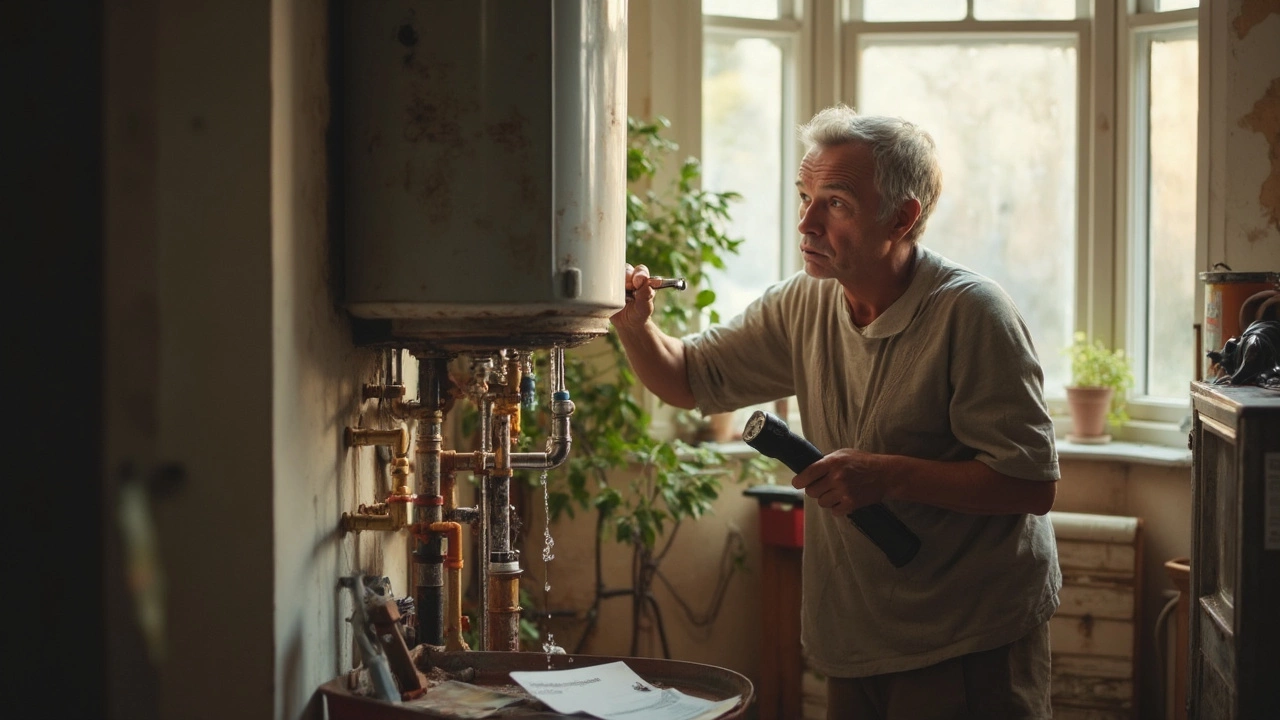
Wondering if your hot water heater is about to quit? This article breaks down the most common signs that your water heater needs to be replaced, from strange noises to rusty water. Find out how long these tanks usually last, what to look for during regular maintenance, and how to handle sudden issues. You'll get practical tips to keep your heater running smoothly and avoid a cold shower surprise. If you've ever worried about flooding, energy bills, or weird knocking, this is for you.

Deciding whether to repair or replace your hot water heater can feel overwhelming. This article explores practical considerations, including the age of the unit, repair costs, and long-term benefits. By understanding essential factors like energy efficiency and potential savings, homeowners can make informed decisions. Discover useful tips and interesting facts to help you choose the best course of action for your specific situation.
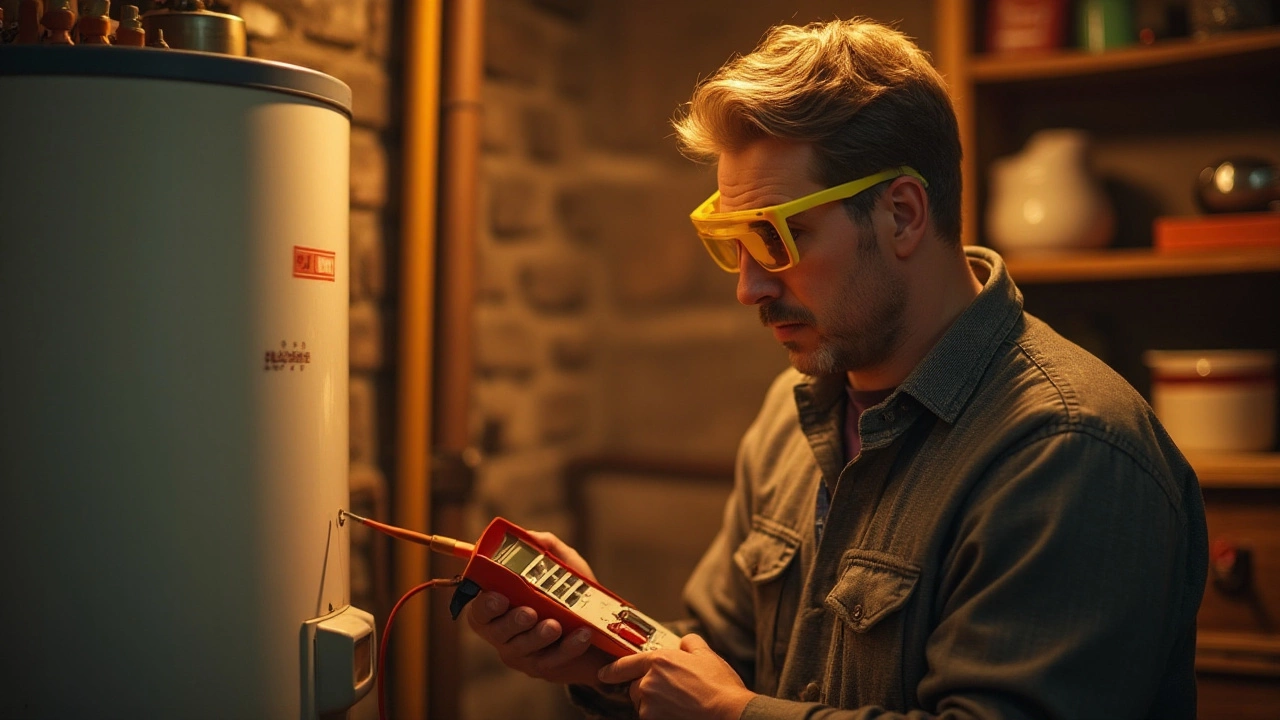
Diagnosing a faulty hot water heater element can seem daunting, but it's an essential skill for any homeowner. Key indicators like water temperature issues, noises, and prolonged heating cycles are telltale signs of a bad element. This article provides practical advice on how to inspect and test your heater element using accessible tools. Also included are safety tips and maintenance recommendations to extend the lifespan of your water heater.
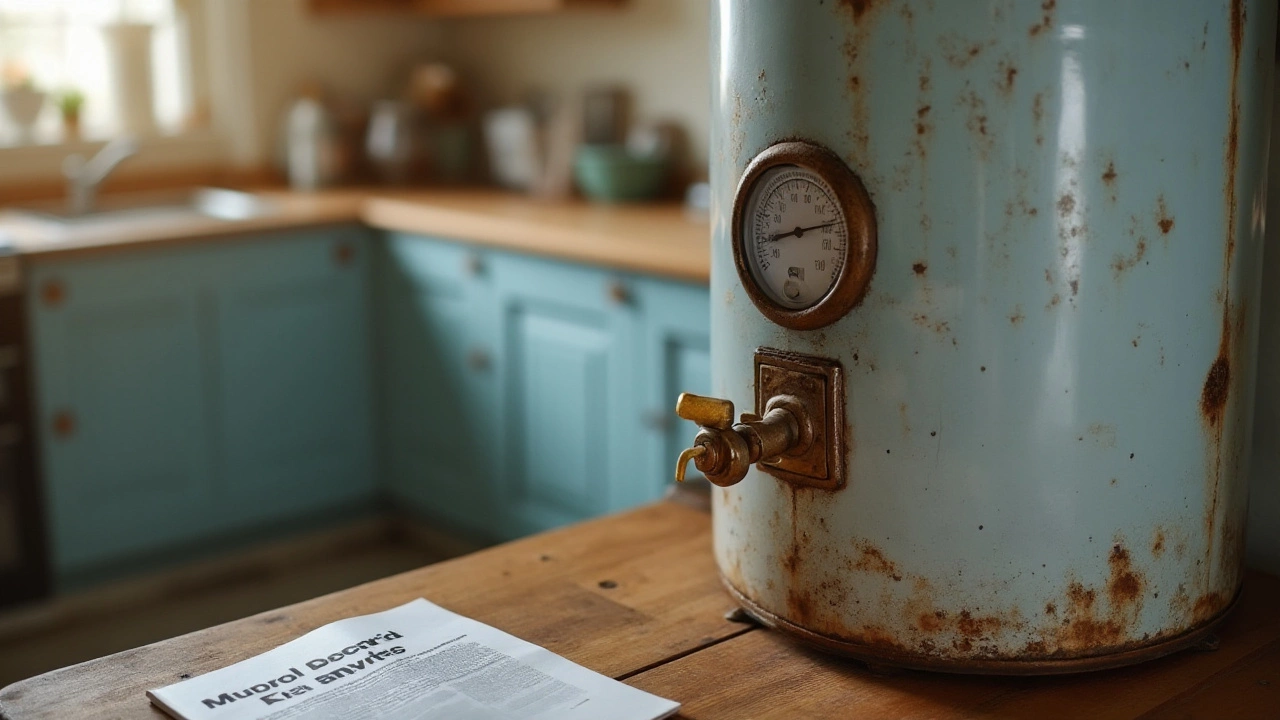
Determining when your hot water heater needs replacement isn't always straightforward. This guide explores key signs such as irregular water temperatures, strange noises, and age that might indicate it's time to get a new unit. Understanding these signs not only ensures a reliable hot water supply but also prevents potential damage and higher energy bills. Additionally, we discuss some tips for maintenance to prolong the life of your current system.
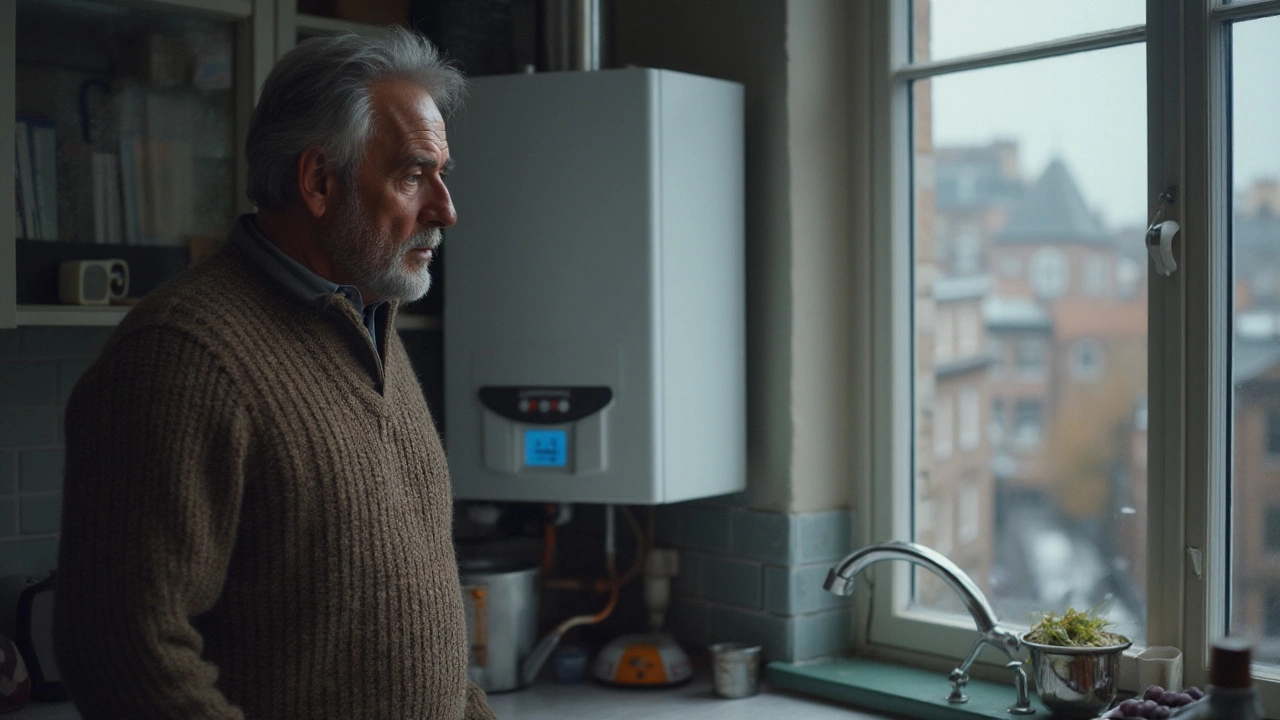
Struggling with a hot water heater that refuses to kick on can be frustrating, especially on chilly days. In this detailed guide, you'll find practical solutions and in-depth explanations to help diagnose and possibly fix some of the most common issues that prevent your hot water heater from functioning. Whether it's a simple power issue or a more complex mechanical fault, this article equips you with the knowledge to tackle the problem. It's time to stop second-guessing and start understanding what's really going on with your heating system.

Wondering if your oven can hit the 20-year mark? This article digs into what really decides how long an electric oven lasts, from the make to how you treat it. Get real tips to keep yours running strong, spot early signs of trouble, and find out when repair is smarter than replacement. No fluff—just straight answers for anyone looking to save money and avoid surprise oven breakdowns. This is your guide to squeezing every last year out of your electric oven.
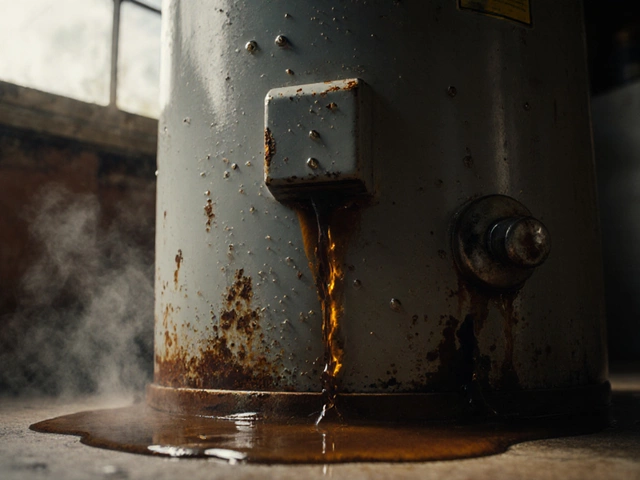
Most water heaters fail due to tank corrosion, heating element burnout, or sediment buildup. Learn the top failure points and how to spot them early to avoid costly repairs or floods.
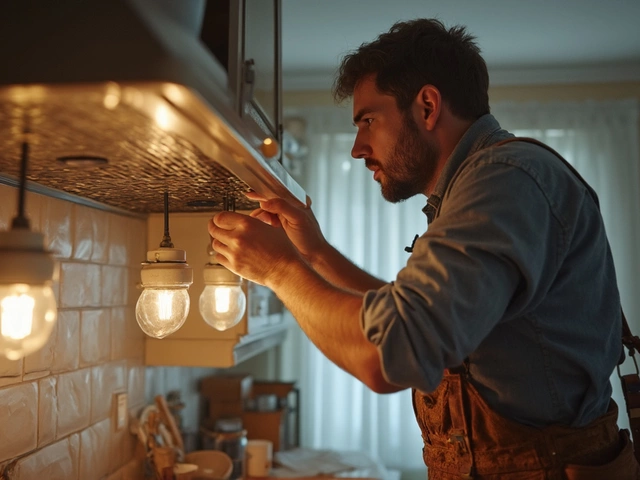
Understanding whether an electrician can repair your extractor fan might save you time and hassle. Dive into the nitty-gritty of what electricians can do for your fan problems, and get tips on how to maintain these helpful appliances. This guide covers the skills electricians bring to the table and when a specialist might be needed. Stay informed and prepared for any fan-related issues that might come your way.
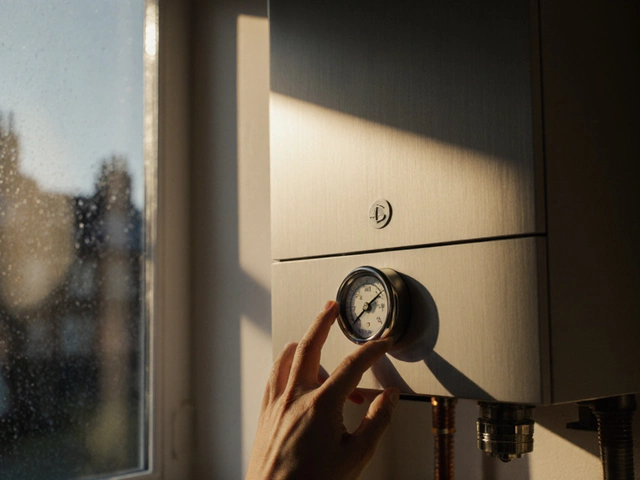
Step‑by‑step guide to diagnose common boiler problems, covering pressure, thermostat, fault codes, leaks, and when to call a professional.

Keeping your home well-ventilated is essential, and extractor fans play a crucial role in maintaining air quality. Whether you're installing a new fan or repairing an old one, it's important to know who to call. Professional electricians and specialized ventilation technicians are the go-to experts. They ensure fans are properly installed and functioning efficiently, saving you from potential hassles down the road.